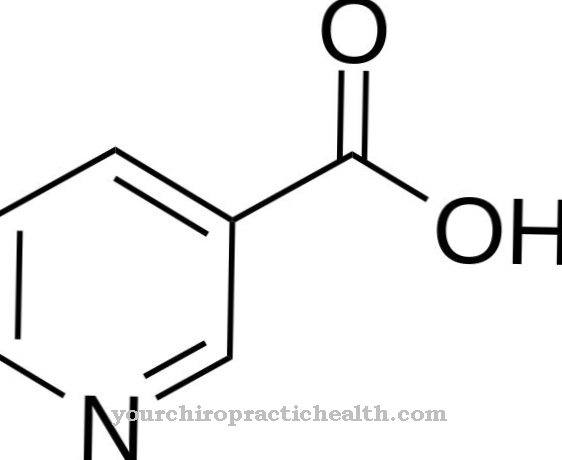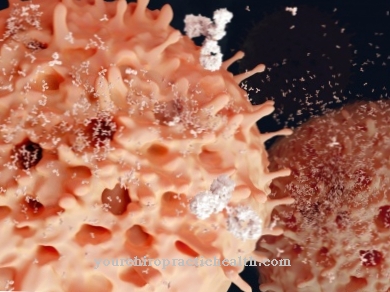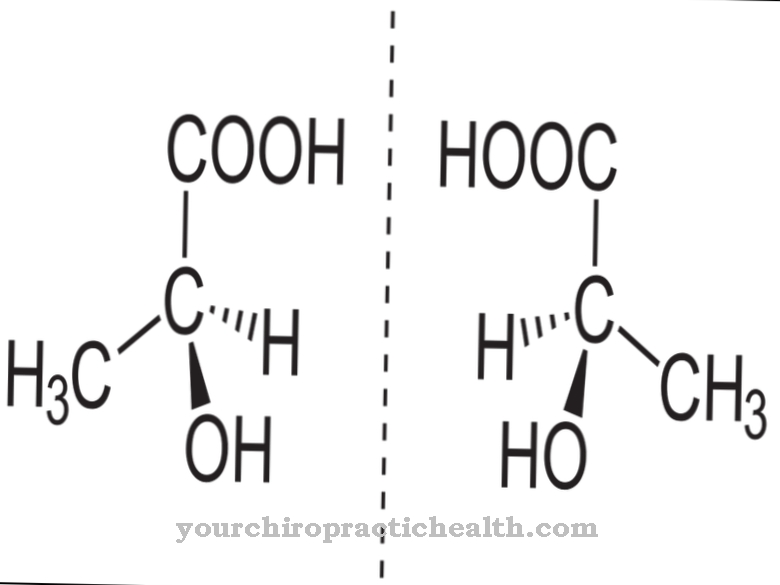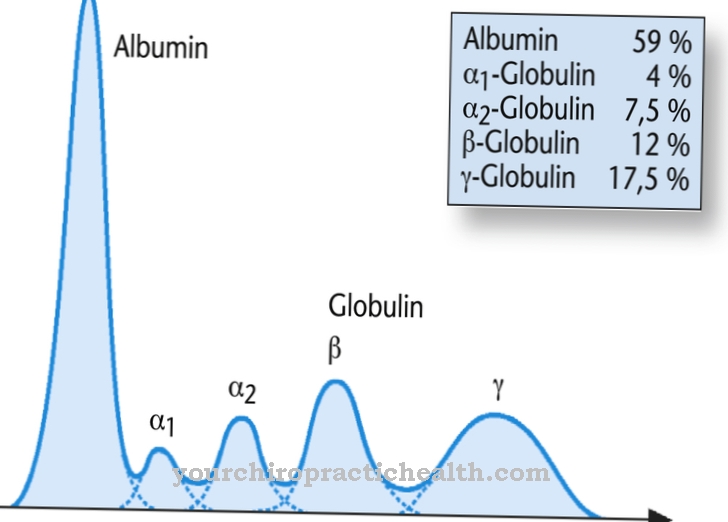Allergens are antigens that trigger an unusually strong immune response in a person. The immune reaction serves to fight a substance perceived as a threat, which is normally harmless to the body. This hypersensitivity reaction to allergens is called an allergic reaction.
What are allergens?
Allergens are antigens that are able to trigger a type 1 hypersensitivity reaction in atopic individuals through immunoglobulin activation.
In most people, an immunoglobulin response occurs only in response to a parasitic infection. However, there are also people who react in this way to antigens that are common in the environment. This hereditary predisposition is called atopy.
In atopic individuals, non-parasitic antigens stimulate an abnormal increase in immunoglobulin E antibodies, resulting in type 1 hypersensitivity.
The type of hypersensitivity varies from person to person (or from animal to animal). A wide range of substances can become allergens for sensitive individuals. Known allergens are mite droppings, pollen, animal hair (cats, dogs, etc.), fungal spores, royal jelly, peanuts, hazelnuts, fish and seafood, eggs, milk, strawberries, wheat gluten, soy, perfume, food coloring, flavor enhancers, and bees Wasp venom, penicillin, wool, latex, nickel and formaldehyde.
Medical & health functions, tasks & meanings
The reasons people are allergic to Allergens develop can be found in the genetic make-up, personal habits and the environment. There is an indication that children who eat fast food frequently have a generally increased tendency towards allergies. The age of first contact with an allergen also plays a role: the earlier in the life story a person has come into contact with an allergen, the higher the likelihood that they will develop an allergic reaction to it at a later point in time.
This is because the body's immune system needs to develop a sensitivity to the allergen before one can become allergic to it. In other words: the immune system has to recognize the allergen and keep it in its “memory” and then develop antibodies against it. This process is known as awareness raising. However, depending on the person, it takes a different amount of time to develop sensitivity to an allergen. Some people do not get past the sensitization phase, they suffer from some symptoms related to the allergens, but they never develop a full-fledged allergy.
Contact with an allergen occurs through inhalation, touch, injection or through food. In order to protect allergy sufferers among consumers, there are allergen labeling guidelines in Germany that determine which allergens must be declared on food packaging or at a sales stand. In 2006, the allergens that had to be labeled included z. B. Celery, mustard, peanuts, crustaceans, mussels and cereals containing gluten.
There are also so-called pseudo-allergens that trigger allergy-like symptoms. These include u. a. Cigarette smoke, milk sugar, fine dust, cleaning agents and ozone. Substances that never cause allergies are mountain air, pure water, fats, mineral salts and purified vitamins.
Illnesses, ailments & disorders
Typical allergic reactions to Allergens cause irritation and inflammation in the body, causing the affected areas to swell.
Symptoms can be:
- Nausea, vomiting and diarrhea
- runny nose, sneezing
- Pain or pressure in your sinuses
- itchy or burning eyes, ears, lips, throat and roof of the mouth
- Swelling of the mucous membranes
- Rashes
- to cough
- wheezing or wheezing
- shortness of breath
In rare cases, an allergy can lead to a severe allergic reaction called anaphylactic shock, which can be fatal. Usually, allergic reactions affect a specific part of the body, such as B. the nose, the eyes or the skin. In anaphylactic shock, however, the whole body reacts allergically and this usually happens within a few minutes after contact with the allergen.
Anaphylaxis is divided into four degrees of severity:
Severity 1: Sneezing, coughing, wheals, itching, reddening of the skin, edema, increased pulse.
Severity 2: Oppression, difficult breathing, stomach cramps, jugular vein congestion, drop in blood pressure.
Severity 3: severe drop in blood pressure, severe shortness of breath, seizures.
Severity 4: Pale or bluish skin, loss of consciousness, no palpable pulse.
If a person gets anaphylactic shock in response to an allergen, they need emergency treatment in which they are injected with the drug adrenaline.



























